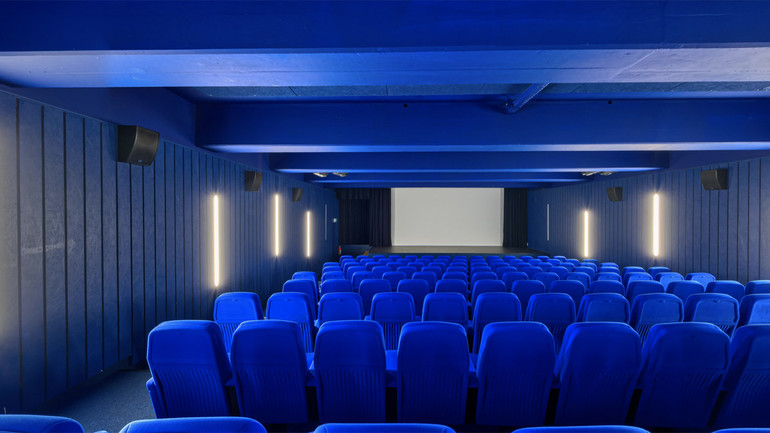Enroll in a 21st century school open to the world
Collège et Lycée Saint-Charles is a private boarding school offering a modern education since 1897, located in the heart of Europe, in a town called Porrentruy, in the Canton of Jura, Switzerland.
We welcome boarding students from age 10, offering bilingual education across three programmes: Swiss national diploma, IB (International Baccalaureate) DP (Diploma Programme) and MYP (Middle Years Programme).
A community built on values of humanism, tradition and openness, mixing local students with boards from all over the world, building NOW a society for the FUTURE.
What makes the IB stand apart from other curricula?
- Our continuum: the MYP supports and leads into our Diploma Programme, with the core at the heart of the programme
- Developing the whole person: personal and academic growth
- Developing 21st century skills required by Universities and employers, with an emphasis on independent learning through research and applying problem-solving skills to real-world issues
- Developing a global identity – our students leave us as multilingual students, who have international mindedness, compassion and an understanding of intercultural differences.
- Reputation as a broad, balanced and rigours curriculum, that will open more doors into University and the future.
MYP:
- Up to 14 subjects
- Personal project
- Service as Action
- MYP inter-connected studies
DP:
- 6 subjects
- Extended Essay
- CAS: Creativity, Activity and Service
- Theory of Knowledge
Essential skills for university:
- Developing a positive attitude to learning through asking challenging questions, learning to reflect, developing research skills and learning how to learn
- Challenging thinking and the way in which we understand and accept knowledge
- Taking on new challenges
- Developing perseverance and interpersonal skills
- Making connections between learning
This leads to:
- Higher acceptance rates at University and higher graduation rates
- More 1st class honors degrees are awarded to IBDP students
- Credits are given in some countries, like the US, to accelerate the completion of the degree.
The International Baccalaureate® (IB) Middle Years Programme (MYP) emphasizes intellectual challenge.
The MYP is the ideal preparation program for the final two years of the IB Diploma. Young people are supported in linking their academic learning to the world and its different realities, as well as to develop complementary skills to the disciplinary knowledge itself. As students grow with us, they develop the skills young people need to continue their studies and to be successful life-long learners through the IB Learner Profile. This is widely integrated into all aspects of teaching and learning within the MYP programme.
In Grade 11, our students have the opportunity to carry out a Personal Project, encouraging students to reflect on their learning and the outcomes of their work – key skills that prepare them for success in further study and in life beyond the classroom.
Our students study subjects in all areas of education: arts, languages, math, science, design, humanities and physical education, acquiring a foundation that enables them to make informed choices when they reach the IB Diploma Programme. Completing their academic studies, our students are also involved in service as action, through community service, outside of the classroom.
Language of Instruction: English
Grades: 8 to 10
Ages: 14-16 years old
Classes per week: 32 hours
The International Baccalaureate® (IB) Diploma Programme (DP) is an assessed programme for students aged 16 to 19. It is respected by leading universities across the globe.
Taken over two years prior to University, the IB Diploma programme is rich with the experience of more than 50 years of teaching worldwide. In addition to traditional subjects such as mathematics, humanities and experimental sciences, students are invited to work in an interdisciplinary manner, forging links between different subjects.
At the heart of the Diploma Program is the Core, comprised of Theory of Knowledge, Extended Essay and Creativity-Activity-Service. Complementing the subject curriculum, the core encourages artistic and athletic activities, alongside community service. The skills developed within the core set IBDP students apart from other students in developing the essential skills required for University and life, making students highly competitive in today’s demanding world.
Students have the opportunity to create their personal programme of study by choosing 6 subjects from each of the following groups:
· Groups 1 & 2: Languages
· Group 3: Humanities
· Group 4: Sciences
· Group 5: Mathematics (group 5),
· Group 6: The Arts or further study from Groups 2, 3 or 4
From the 6 subjects, students choose to study 3 subjects at a Higher Level and 3 at a Standard Level.
Language of Instruction: English
Grades: 11 and 12
Ages: 16-19 years old
Classes per week: 32 - 34 hours
When students board at Saint-Charles, they join a friendly family community in which they can live, study and play, secure in the knowledge that they are valued and well-cared for.
Boarding provides students with the space to focus on their work, whilst also giving them the chance to get involved in a wide range of extra-curricular activities that might not be practical while living at home.
For more information on the boarding such as meals, timetable and the team, please check our Boarding age on the school website:
https://www.saint-charles.ch/en/About-us/Boarding-school.html





